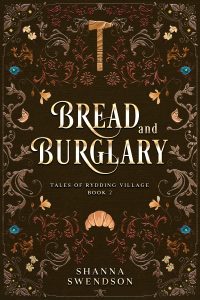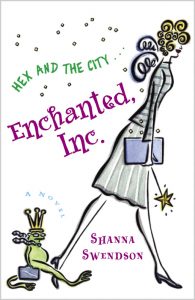Earlier in the year, the New York Times crossword puzzle had a clue that was “the better of two science fiction franchises,” and it worked whether you answered Star Wars or Star Trek (there were two possible answers for the crossing words). I actually had to waver between them and ended up doing the thing where you put both letters in the square, showing it could be either. I’ve never really understood the whole Star Trek vs. Star Wars thing because I’m very much on team Why Not Both. I guess you could say I’m bi-starial. I have a long history with both franchises and my obsession has swayed back and forth, depending on what’s more prominent in my life at any given time.
My mom says she used to nurse me as an infant while watching the original run of the original Star Trek (yes, I’m old), so I guess you could say I’ve been a fan since birth. I have vague memories of seeing episodes as a child, and I watched the animated series. But then I saw the original Star Wars when I was nine and became utterly obsessed with that for about six years.
The Star Wars obsession faded somewhat after Return of the Jedi, I think in part because the story seemed to be over and there was no more speculation about what would happen next to keep me occupied. Also, none of my friends seemed to be into it (I later found there were a lot more closet geeks in my hometown than I realized, but we were all keeping quiet about it and it took us thirty years to find each other), which gave me nothing to keep the obsession going. But then one of the local TV stations started showing Star Trek reruns every afternoon, right around the time we got home from school (my parents worked at the school, so we all commuted together), so it became a family routine to get home from school and watch Star Trek. We’d gone to see the movies, and I knew enough about it to know who the characters were, but I hadn’t really watched the series in any depth, and when I did, that obsession hit. I found some of the novels at the used bookstore and finally appreciated the stories in the movies.
The Star Trek obsession was reinforced when I got to college and the gang on my dorm floor gathered every afternoon to watch before trooping down to the cafeteria for dinner. I was the journalism major surrounded mostly by engineering and computer science majors, so Star Trek was one of the things I could talk to them about and sound reasonably intelligent. The Next Generation came on while I was in college, and we also gathered to watch that, usually after dinner on Saturday nights. I got really into that show and even bought the novels as they came out. We did watch the Star Wars trilogy on our movie nights every so often, so the Star Wars thing was still lurking. It just wasn’t top of mind during those years.
There was a slight resurgence in the Star Wars interest after I graduated from college when the original Timothy Zahn novels came out, actually continuing the story, but I didn’t much like most of the Expanded Universe books that came afterward. Then Deep Space Nine came on, and I was back to Star Trek obsession. I started watching both Voyager and Enterprise, but I didn’t finish those series (I did come back to watch the Voyager finale, though). The Star Wars Special Editions came out during this phase, and I did go see those with friends from work, but The Phantom Menace didn’t revive the Star Wars obsession too much. It was Attack of the Clones that did that, and that came after Deep Space Nine ended, so there was no Star Trek at the time. This was the first new Star Wars movie to come out when I was in a place in my life when I could see it as often as I wanted to, and I actually wanted to, so one of my friends and I went to see it three times that summer. Revenge of the Sith is oddly paired with Enchanted, Inc. in my mind, since they came out at around the same time. Revenge of the Sith came out the week before Enchanted, Inc., and then I saw it a second time the day I had my author photo taken (I saw the movie in the same dress that I’m wearing in that photo).
There was then a dry spell in between, when there wasn’t any new Star Wars or Star Trek. I mostly drifted to Doctor Who during that time. The Clone Wars animated series was on, but I wasn’t aware of it at the time. I picked up on Rebels about halfway through its run. Then the Star Wars firehose opened and we started getting tons of new Star Wars stuff with all the new movies, and then the various TV series. I’m back to being that nine-year-old kid who’s utterly obsessed, but there’s a lot more material to immerse myself in. I don’t have to just reread the novelization of one movie while listening to the soundtrack in order to get my fix.
At the same time, though, they’ve also started giving us a lot of new Star Trek. I didn’t have Paramount+ so I hadn’t seen much of it. I saw part of the first episode of Discovery when they showed it on CBS during the pandemic, but that station wasn’t coming in well for me and I gave up after getting mostly glitches. The one I got into was Strange New Worlds, when they had the first season on Prime Video as one of their “free this month” previews.
That series follows the Enterprise under the command of Captain Pike (the one in the wheelchair-like device in the episode that was repurposed from the unaired original pilot), with a very young Spock and Uhura. A young Kirk shows up from time to time. I feel like this series captures the vibe of the original series, but in an updated way. They even manage to get the aesthetic so that it feels like it could be from the same era, but somehow without it looking too dated (the way they manage to get Andor to look like the original Star Wars without it screaming that it’s from the 70s). My brother gave me Paramount+ at Christmas, so I’ve been able to catch up on watching the rest of that series.
I’ve also picked up on Lower Decks, an animated Star Trek series that’s both a good Trek show and a spoof of Star Trek. It follows the ensigns who don’t work on the bridge, who do the grunt work, on a ship that isn’t the flagship of the fleet. They’re on the “second contact” ship, the one that comes in to handle the paperwork after a ship like the Enterprise has made first contact. It’s set after The Next Generation (Riker is captain of his own ship, finally). The show pokes gentle fun at all the Trek tropes by showing them from the point of view of the crewmembers who are just trying to do their jobs. For added fun, there was an episode of Strange New Worlds that had the characters from this animated series be transported back in time to the Enterprise and converted to live action (using the same actors who voice the roles). The episodes for this series are only a half-hour long, so this is what I watch when I don’t have time for anything longer.
I started watching Picard with my brother at Thanksgiving, but I haven’t had a chance to finish it. I also want to revisit the original series, since I know I missed a lot of connections and references on Strange New Worlds.
I feel like we’re in a golden age of Stuff Starting With “Star.” I could watch nothing but Star Wars and Star Trek and fill all my entertainment hours. With there being so much of both, I’m kind of teetering between the Wars and Trek obsessions. I may be leaning closer to the Wars, just because I think I’m more emotionally engaged with that universe and it’s essentially fantasy in a science fiction setting, which is more my jam, but I don’t feel like it has to be a competition. It’s more like “Yay, lots of fun stuff!”
 After a bit of a delay caused by my move across the country, followed by another delay due to my procrastination about getting a book cover made, I’m pleased to announce that Bread and Burglary, book two in the Tales of Rydding Village series, will be published August 7, and the e-book is currently available for preorder. There will be a paperback on release day, but they don’t let you preorder those.
After a bit of a delay caused by my move across the country, followed by another delay due to my procrastination about getting a book cover made, I’m pleased to announce that Bread and Burglary, book two in the Tales of Rydding Village series, will be published August 7, and the e-book is currently available for preorder. There will be a paperback on release day, but they don’t let you preorder those.
 On Monday (July 22 if you’re reading the archives), it will have been twenty years since I got the book deal to have the first two Enchanted, Inc. books published.
On Monday (July 22 if you’re reading the archives), it will have been twenty years since I got the book deal to have the first two Enchanted, Inc. books published.